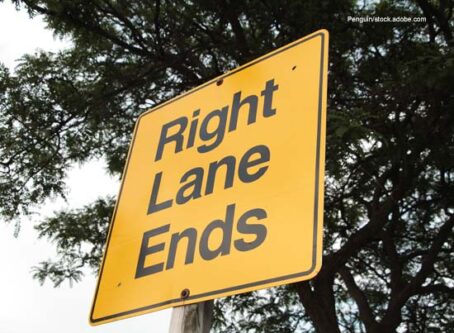Colorado town cannot enforce delivery vehicle restrictions, court rules
A federal court told the town of Vail, Colo., that it cannot enforce an ordinance restricting commercial vehicles.
On Oct. 31, Judge Charlotte Sweeney of the U.S. District Court for the District of Colorado granted a temporary restraining order against the town. The restraining order bars it from enforcing an ordinance that bans commercial vehicles from its pedestrian malls.
Vail’s ordinance
At the center of the lawsuit is an amendment to an ordinance. Ordinance No. 15, which the Vail Town Council adopted in August 2022, regulated which vehicles were permitted to access or use pedestrian malls. It prohibited all vehicular traffic, with a few exceptions.
One exception was “high-volume commercial carriers.” According to the ordinance, a high-volume commercial carrier is defined as “a commercial carrier that, on more than five days per week, delivers a high volume and variety of commercial goods, excluding food and beverage, to multiple recipients in the town.”
This exception appeared to please the Colorado Motor Carriers Association, as it allowed members to carry out deliveries within the Vail pedestrian malls.
However, that came to an end with the recently adopted amendment to Ordinance No. 15.
On Oct. 3, Vail amended the ordinance to remove the exception. Consequently, the ordinance allows motor vehicles to deliver commercial goods to pedestrian malls only if they fall into one of two categories:
- A town-approved contractor
- A vehicle owned by a business that owns a loading dock within the pedestrian mall area, if the vehicle is clearly marked to show ownership
As a result of the amendment, Colorado Motor Carriers Association members doing business within Vail pedestrian malls can do so only by:
- Tendering deliveries to an approved contractor at its loading dock between 6 a.m. and 2 p.m.
- Leaving deliveries at a location outside pedestrian mall areas and directing recipients to collect the goods from that location
- Using hand carts to make pick-ups or deliveries on foot within pedestrian mall areas
According to court documents, truckers have been unable to deliver commercial goods directly to shops and business owners within pedestrian mall areas. Customers have experienced deliveries that were delayed, left unattended for hours without notice or just flat-out not delivered.
Vail ordinance vs. federal law
On Oct. 20, the Colorado Motor Carriers Association filed a lawsuit against the city of Vail, claiming the amendment to Ordinance No. 15 violates the Federal Aviation Administration Authorization Act and the Airline Deregulation Act.
According to the Airline Deregulation Act, no state or political subdivision may “enact or enforce a law, regulation or other provision having the force and effect of law related to a price, route or service of an air carrier or carrier affiliated with a direct air carrier through common controlling ownership when such carrier is transporting property by aircraft or by motor vehicle.”
In a similar provision, the Federal Aviation Administration Authorization Act states that not state or political subdivision may “enact or enforce a law, regulation or other provision having the force and effect of law related to a price, route or service of any motor carrier . . . or any motor private carrier, broker or freight forwarder with respect to the transportation of property.”
The Colorado Motor Carriers Association argues that the amended ordinance is in direct violation of the federal laws because it relates to a price, route or service of motor carriers.
However, the town of Vail argues that the ordinance falls within exceptions carved out in both laws, as both contain a provision that prevents them from restricting the motor vehicle safety regulatory authority of a state.
Vail claims that the ordinance is “genuinely responsive to safety concerns.” Specifically, the original ordinance was adopted to increase the safety of pedestrian traffic and to reduce congestion in pedestrian mall areas. It later was amended to better address “pedestrian and vehicular circulation” in those areas.
Calling both arguments “an extremely close call,” the court sided with the Colorado Motor Carriers Association, granting it a temporary restraining order against the ordinance.
According to the court order, the restraining order applies only to the amendment passed in October. The original ordinance that exempted high-volume commercial carriers will remain in place. LL









